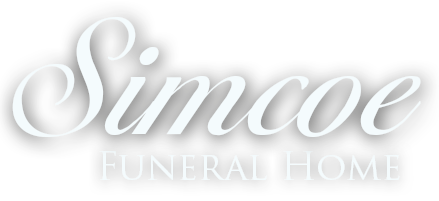
When Death Occurs
Whether a death is sudden or from a long-term illness, the loss of a loved one makes us feel emotional and overwhelmed. No amount of preparation can fully prepare you for the loss of a loved one. When you are in this heightened emotional state, even the most basic decisions can be difficult.
When death occurs suddenly
If the person was not under a hospice/palliative care, the police will need to be notified immediately. A police officer will attend the scene as procedure warrants. The officer will then notify the family physician or the coroner on call to attend the scene to pronounce the death. Once the physician or coroner has attended the scene and completed a Medical Certificate of Death, the funeral home is then notified to come and transfer the deceased to the funeral home. If the person was under hospice/palliative care, contact the home care nursing service as they will advise family members of the procedures to follow.
When a death occurs at a hospital/nursing home/hospice facility
Once a staff member of a care facility such as a hospital or a nursing home has notified you of a death of a loved one, it is important for your family to contact a funeral home of your choice to advise them of the death. The funeral home will set an appointment for your family to come in and speak with a licensed funeral director to make arrangements. The funeral home will contact the facility where the death has occurred to make arrangements to have the deceased transferred to the funeral home for care.
Meeting a Funeral Director
You should meet with a funeral director within 24 hours of a death to begin to make final arrangements for your loved one. Deciding on these final arrangements may seem like a very daunting and overwhelming task, especially when you are in heightened emotional state. Professional funeral directors have years of experience helping families during this difficult time, and strive to ensure everything goes as smoothly as possible.
Making Arrangements
The funeral director will gather information required for the death registration. This includes:
- Full name and address
- Marital status (if married, the date of marriage)
- Birth date and city of birth
- Occupation
- Social Insurance Number
- Father’s name, mother’s name (including maiden name) and birthplaces of parents
- Name of spouse (if applicable)
- Surviving spouse's Social Insurance Number, birth date and city of birth
The funeral director may also require pertinent items or documents, such as:
- Health card (the funeral home will return to Service Ontario)
- Marriage certificate & void cheque (for C.P.P. Survivor's Benefit)
- A photo of the deceased
- Clothing, if required
- Cemetery information, if burial
- Last will
If no pre-arrangements have been put in place, necessary arrangements need to be made for the funeral service. These include:
- Scheduling the location, date and time of the visitation and funeral service
- Selecting burial or cremation
- Choosing funeral merchandise
- Ordering flowers
- Arranging a cemetery plot
- Preparing a newspaper notice
- Selecting charitable donations
- Scheduling transportation arrangements
A funeral director will guide you through all these steps using your wants, needs and desires as a foundation to create a memorable funeral for your loved one. From here, the funeral services can be personalized. Did your loved one have a favorite sports team? What was their favorite type of music? What activity was your loved one known best for? Recalling fond memories assists with the grieving process and will help honor the life of your loved one.


